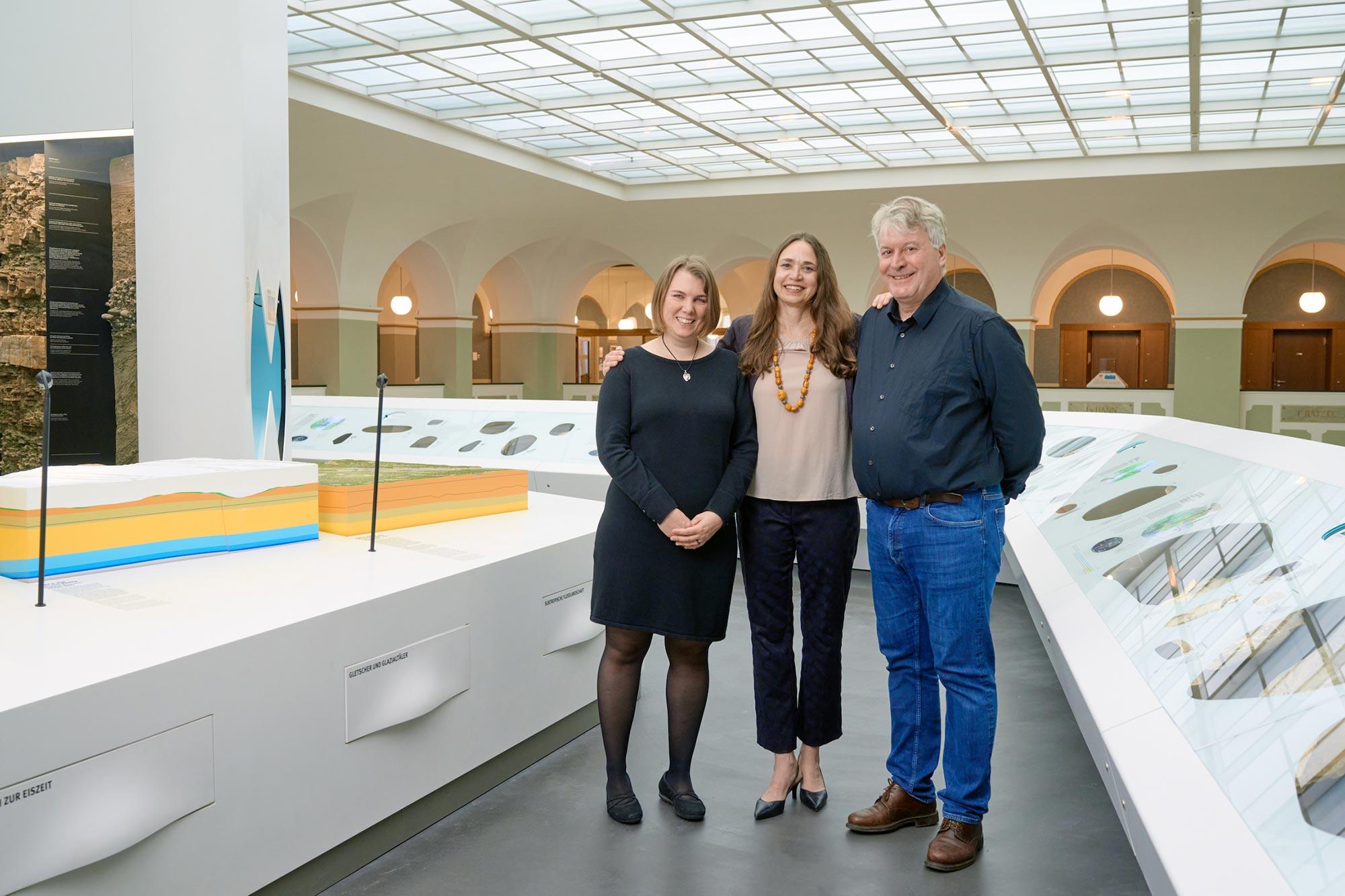CO2 at the heart of an exhibition

Keep It CO2OL, an exhibition on CO2 and climate change, wins the Optimus Agora Prize 2023.
Carbon dioxide (CO2) makes life possible on Earth. But it is also responsible for global warming. In order to raise public awareness of this issue and the challenges of climate change, scientists at ETH Zurich, in collaboration with their colleagues at focusTerra, the Museum of Earth Sciences, are organising the Keep It CO2OL exhibition as of winter
. This awareness-raising project is the 2023 winner of the Optimus Agora Prize, which will be awarded in the autumn as part of Science Comm'23.
Interview with the winning team: Timothy Eglinton, scientist at ETH Zurich (Sonia Seneviratne, also a scientist at ETH Zurich and winner, was absent at the time of the interview), Ulrike Kastrup and Kerstin Bircher from the focusTerra museum.
Why name an exhibition on the sensitive subject of global warming "Keep It CO2OL"?
Ulrike Kastrup: We like the play on words about staying cool, both when it comes to the climate and our own perception of the challenge that climate change represents. It can be a source of fear for some people. We'd like to help people stay calm, feel able to manage the situation and even look at it with optimism. In any case, we have no choice but to go through it!
How will the exhibition contribute to this?
Timothy Eglinton: It will enable visitors to understand the importance of CO2 and the challenges of climate change. To adapt our behaviour and adopt new, greener technologies, we need to understand what is at stake. We felt that an exhibition was an interesting way of interacting with the general public. And focusTerra has a wealth of experience in creating exhibitions for the general public.
Ulrike Kastrup: The exhibition will also be a meeting place for the general public and experts from science, industry and politics. The content and activities of the exhibition are being developed in collaboration with over 70 scientists from ETH Zurich, including Timothy Eglinton and Sonia Seneviratne, as well as other institutions, companies, artists, and private and public partners. It's a measure of the seriousness and credibility.
Who will it be aimed at?
Kerstin Bircher: It will be aimed at everyone, from schoolchildren to retirees. focusTerra is a science museum whose strength lies in showcasing science through accessible exhibitions and interactive activities. This will also be the case for the Keep it CO2OL exhibition. Because we always look at a subject from different angles and offer a wide variety of activities, we are able to attract people with different interests. And perhaps even those who initially only want to visit the museum's earthquake simulator will suddenly find themselves immersed in the world of CO2. What's more, the museum is an ideal venue for organising events alongside the exhibition, making it even more attractive.
And what will it offer specifically?
Ulrike Kastrup: A varied programme around CO2, with presentations, interactive installations and events as well as guided tours, lectures, roundtables, workshops and opportunities to meet scientists. The exhibition will be on show at ETH Zurich for a year and a half starting in winter
, before continuing its journey through Switzerland and Europe.
As a scientist, Timothy, what do you gain from organising an exhibition?
Timothy Eglinton: It's a challenge because it's my first exhibition. But it's interesting to build everything from scratch with focusTerra. And it's also a unique opportunity to be heard! As I'm nearing the end of my career, it's also an excellent way for me to present my work to a wider audience than I usually do, for example at conferences.
You are at the heart of this research – do you think there's still hope regarding CO2 emissions and global warming?
Timothy Eglinton: Some days I'm optimistic, others less so. In any case, we must act, and even if we have a very small role to play, it is still an important one. And I also believe in our ability to adapt to new conditions.
Ulrike Kastrup: Yes, I think it's still possible to take action. But we need to do it now, because we're already behind schedule. As Timothy said, we can all do something at our own level. Every degree counts! Technology alone will not save us; we will also have to adapt our behaviour.